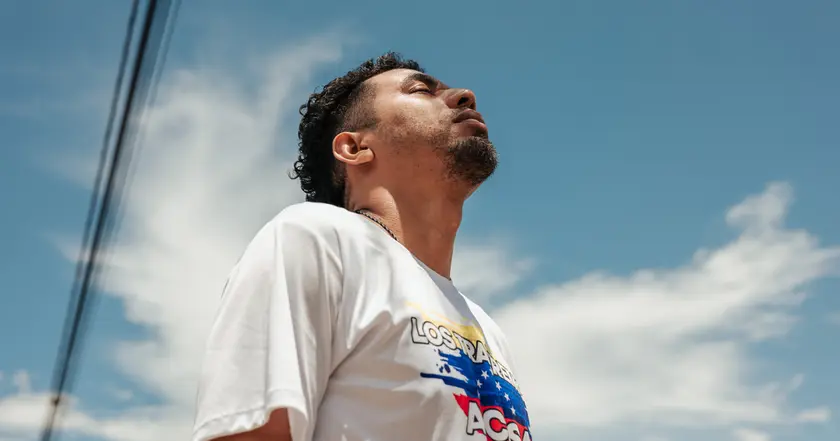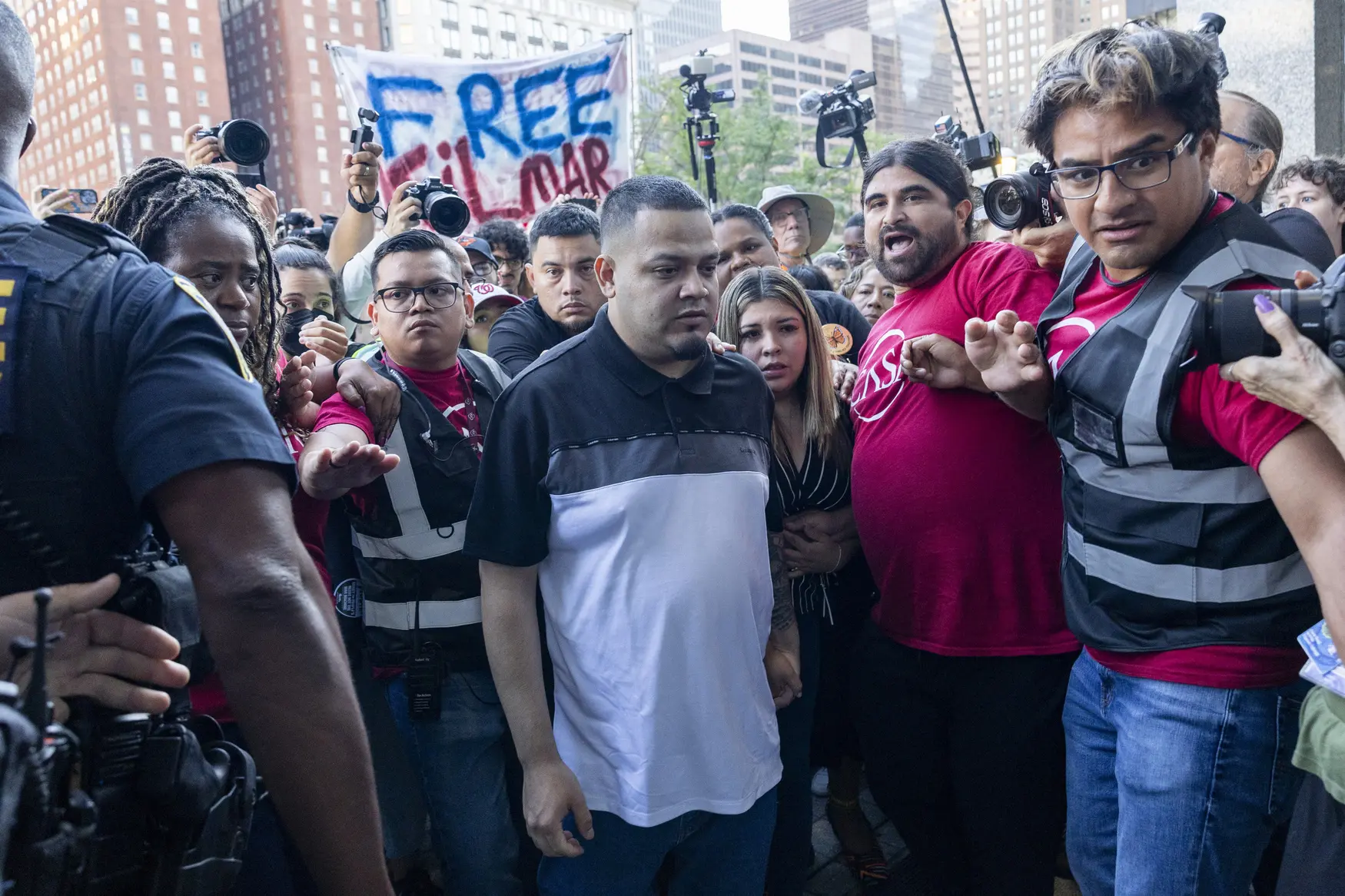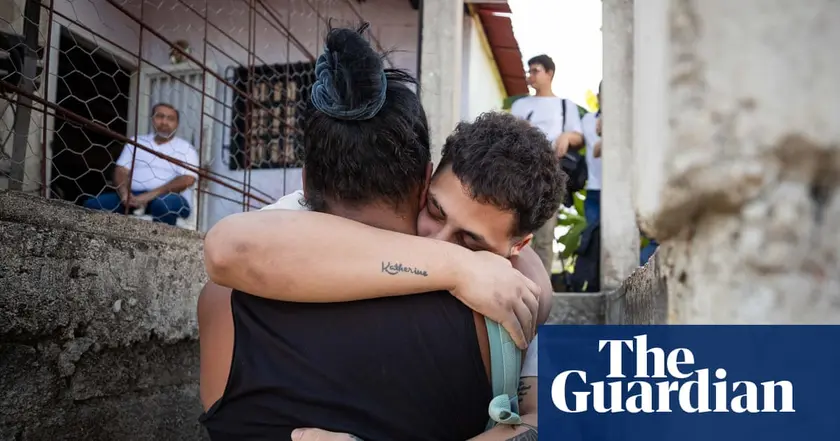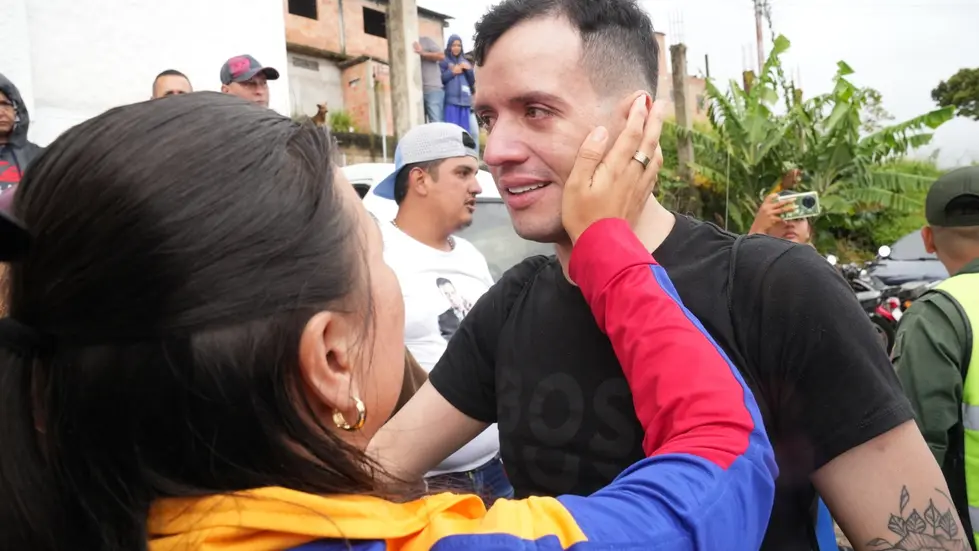T4K3.news
Venezuelan Men Share Abuse Stories Post Deportation
Venezuelan men deported by the Trump administration recount months of mistreatment in CECOT, a Salvadoran prison.

Venezuelan men detail their harrowing experiences following deportation by the Trump administration.
Venezuelan Men Share Stories of Abuse After Deportation to CECOT
Venezuelan men deported by the Trump administration to CECOT, a maximum-security prison in El Salvador, recounted severe physical and psychological abuse during their incarceration. After enduring months of mistreatment, some of these men are now back in Venezuela, expressing relief but also confusion about their deportation and why they were targeted. The deportations, carried out under claims that the men were part of a dangerous gang, have drawn criticism as many of the men did not have criminal records in the U.S. and were held without access to legal representation.
Key Takeaways
"We are a group of people who I consider had the bad luck of ending up on this black list."
This quote reflects the feelings of unjust targeting among the deported men.
"The country with the Statue of Liberty deprived us of our liberty without any kind of evidence."
This highlights the contradiction between American ideals and the treatment these men received.
"From the moment I realized I was in El Salvador and that I would be detained, it was anguish."
This statement illustrates the immediate fear and uncertainty faced by the deported men.
"I’d rather die or kill myself than to keep living through this experience."
An expression of the severe psychological impact of their incarceration.
These chilling accounts reflect not only the personal tragedies of those deported but also broader implications for U.S. immigration policy. The men were part of a larger narrative where the Trump administration sought to depict immigrants as a threat, despite evidence suggesting many remained innocent. Their stories reveal a troubling intersection of human rights and national security rhetoric, highlighting the need for equitable treatment for all individuals under U.S. immigration law.
Highlights
- This ordeal showed how little regard the U.S. had for our lives.
- I was tortured for months. Why weren't we given a chance to prove our innocence?
- Many of us are not what we were portrayed to be.
- We were raised to be good citizens, not criminals.
Political Risks Surrounding Deportation Policies
The deportation of Venezuelan men by U.S. authorities raises significant political and human rights concerns. The narratives of abuse could lead to public backlash against immigration policies and the treatment of detainees, highlighting the potential for legal and diplomatic repercussions.
The stories of these men challenge perceptions of immigration and justice in the United States.
Enjoyed this? Let your friends know!
Related News

Judge blocks Kilmar Abrego Garcia deportation

Venezuelans detail torture in El Salvador mega-prison

Venezuelans describe experiences in Salvadoran mega-prison

Venezuelan man returns home after wrongful imprisonment

Venezuelan deportees reveal abuse in El Salvador mega-prison

Venezuelan deportee speaks on harsh prison conditions

Cassie Ventura Posts on Instagram After Diddy Trial

Venezuelan migrants flown home after swap
